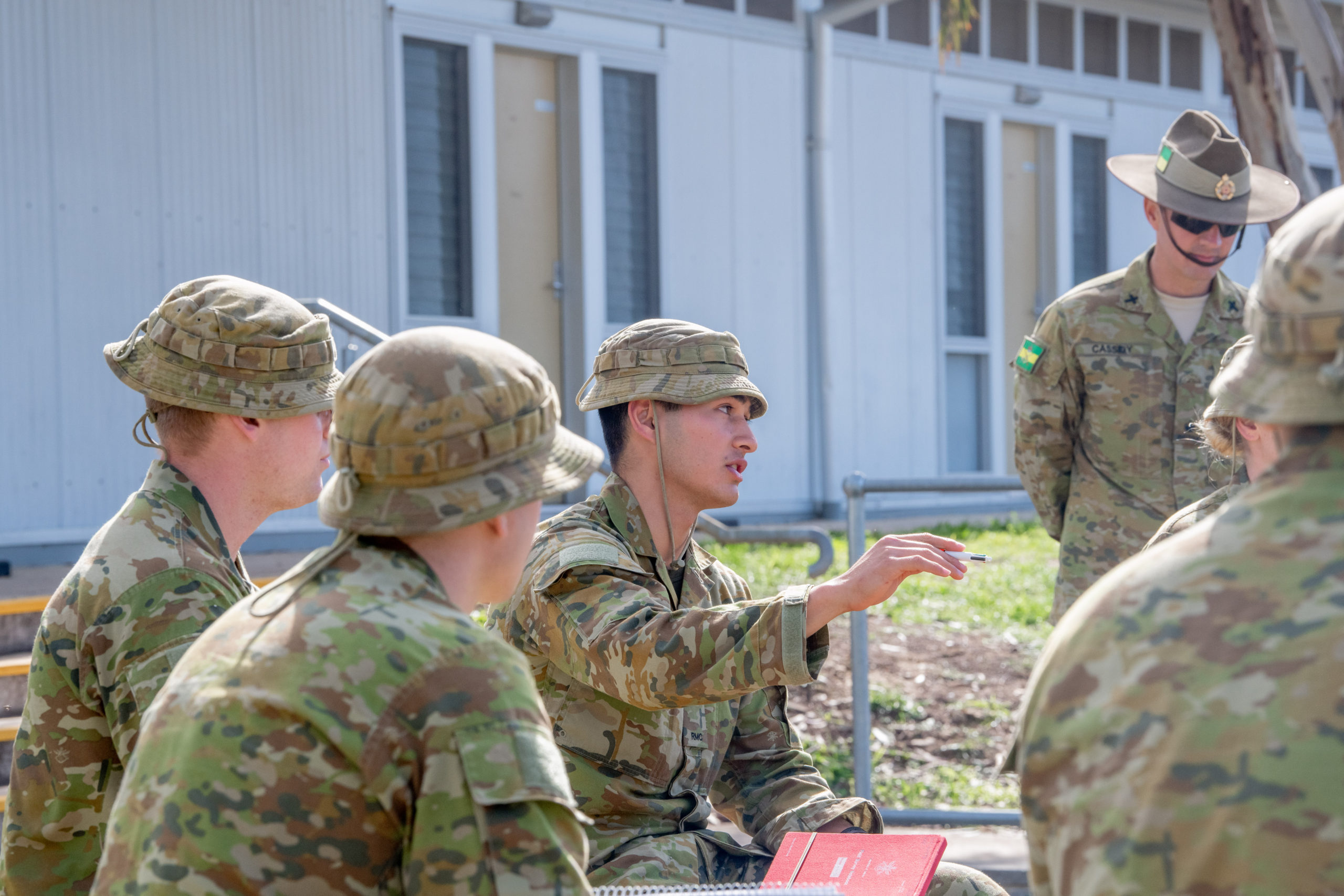As a junior commander, I have made the mistake of stacking my presentations and back briefs with detail for my higher commanders. I thought I was demonstrating I was competent and had met all requirements, but instead I’ve often received feedback that I couldn’t clearly articulate my plan, was over complicating my approach and that I had confused my commanders, leaving them wary of applying mission command.
After reflecting on my experience, I have arrived at three key benefits of brevity:
- Demonstration of understanding;
- Inspiring confidence in the audience; and
- Seizing and retaining the initiative.

Of course, there are circumstances where you are required to deliver your plan in exquisite detail; like ambushes with explicit individual responsibilities, tightly synchronized combined arms operations and high risk activities where safety is paramount.
However, I feel the three considerations above are applicable from the field environment to all planning undertaken in the Army.
Demonstration of Understanding
Understanding your own plan is critical to mission success. You need to take the time analyse the environment and opposing forces (OPFOR), wargame, and test if your plan is FASSD (feasible, achievable, suitable, sustainable, distinguishable); then you will be able to briefly outline your plan and draw out the key decisive events and risks requiring mitigation. This brevity creates time and space for your subordinates and commanders to ask thoughtful questions for clarity.
Inspiring Confidence
When orders or plans are delivered briefly, utilising mutually understood task verbs, it inspires confidence in subordinates and commanders. Incredible detail will overwhelm the audience and can cause concern.
When briefs are long and hold unnecessary detail, tired soldiers will lose interest and will focus on tasks outside of orders. Commanders may begin to make assumptions about your plan, doubt your confidence in your own plan and their attention may drift to the upcoming tasks from their higher commanders.
Clear orders will ensure direct communications, mutual understanding and swift execution of the mission.
Ability to seize and retain the initiative
Winston Churchill delivered a famous memo during the Battle of Britain on the 9th of August 1940 entitled ‘Brevity’ which was key to my self-reflection. It directs readers to shorten paragraphs to include only key points, attach an appendix for more detail if the audience chooses to read it and asks for an aide-memoir in lieu of full reports.
Churchill ends his memo by saying “reports drawn up on the lines I propose may at first seem rough as compared with the flat surface of officialese jargon. But the saving in time will be great, while discipline of setting out the real points concisely will prove an aide to clearer thinking.”
Churchill’s memo was written by necessity as long reports weren’t meeting his needs in a war time environment where the government’s decision-making cycle needed to outstrip the German’s. Reports laden with tedious detail limited the War Cabinet’s ability to think clearly, decide rapidly and seize or retain the initiative against the enemy.
It seems fitting to conclude with reference to our Defence Writing Manual, which speaks briefly to the importance of brevity:
“State ideas fully yet as briefly as possible. Avoid repeating the message using different words: this could cause confusion and uncertainty. This principle applies whether writing one sentence or a document containing thousands of words. Cutting back the length of a piece often improves its quality .”
Brevity empowers you to mobilise force elements rapidly, execute mission-critical tasks and seize the initiative – potentially setting the preconditions for overall campaign success.

About the Author: Lieutenant Emma Watson is a junior officer of 11th Engineer Regiment. Follow her on Twitter.
Cover Image Credit: PTE Miguel Anonuevo

